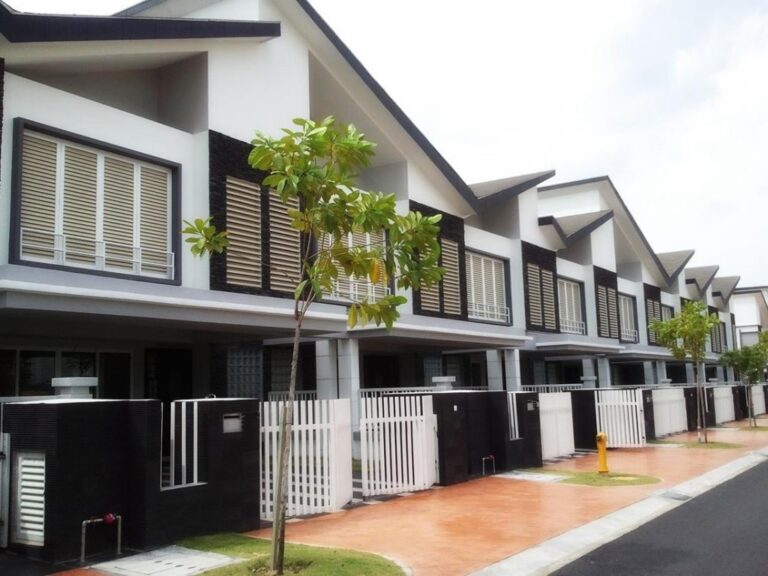Can my Neighbor Record me on my Property | Learn the Law

As private surveillance continues to become more popular throughout the country, many property owners wonder if they can install cameras on their property to monitor activity. It’s a good question “can my neighbor record me on my property”, considering that many states have different laws regarding how and where you can record someone.
There are also some general privacy rights that everyone should be aware of when it comes to recording other people. The answer will differ in every state, so check with your local council before setting up any hidden cameras on your property. There are many good reasons for maintaining surveillance of your property, especially if you own a business or live in a high-crime area. However, as with anything else, privacy concerns must be addressed before installing recording equipment.
Simply said, your neighbor can’t record you just because they want to, but your neighbor can record you if they have your consent. When it comes to recording audio, different situations come into play. There are some restrictions on recording someone else in a private space without their consent, but the rules get muddled when recording on your property.
What Is Considered Illegal Surveillance?

There are two types of surveillance: legal and illegal. Legal surveillance is when a government entity, such as the police, uses cameras or other recording devices to monitor public areas for security purposes. Illegal surveillance is when someone uses cameras or other recording devices to spy on another person without their consent.
There are a few different ways that someone can illegally survey you:
- Place a hidden camera in your home, office, or car without your knowledge or consent.
- Using binoculars or a telescope to spy on you from outside your home or office.
- By flying a drone over your property without your consent.
- By hacking into your computer or phone to access your webcam or microphone without your consent.
- By tracking your location using GPS without your consent.
If you think you are being illegally surveilled, there are a few things you can do:
- File a police report.
- Contact an experienced attorney to discuss your legal options.
- Install security cameras on your property to deter surveillance and catch the culprit in the act.
- Consider changing your locks if you think someone has placed a hidden camera in your home.
- Increase the security of your computer and phone by installing antivirus software and enabling two-factor authentication.
Can You Videotape a Neighbor’s Backyard?
Your neighbor’s backyard is their private property. You generally cannot go onto their property without their permission – even if you want to take pictures or videotape.
There are some exceptions, however. If you live in a homeowners association, there may be rules that allow you limited access to your neighbor’s yard to maintain common areas. Or, if you have a legal easement on your neighbor’s property, you may have the right to enter for the specific purpose allowed by the easement.
You could be trespassing if you do not have permission to enter your neighbor’s yard; no exception applies. Trespassing is a crime in most states, and you could be fined or even sent to jail.
If you want to videotape your neighbor’s backyard, your best bet is to ask for their permission first. If they say no, you may be out of luck. But, if they say yes, you’ll be able to videotape without worry.
Can Someone Film Me Without my permission on Private Property?
It depends on the state you live in and the filming circumstances. In most states, it is legal to film someone without their consent if they are in a public place. This means you can film people walking down the street, riding the bus, or shopping in a store.
However, there are some exceptions. For example, you cannot film someone in a dressing room or bathroom where they have a reasonable expectation of privacy. Additionally, some states have laws that make it illegal to record conversations without both parties consent.
If you want to film someone on private property, such as in their home or backyard, you must get their permission first. If they say no, you cannot film them without risking trespassing charges.
In conclusion, you can usually film people without their consent in public places. However, if you want to film someone on private property, you must get their permission first.
How do you realize someone is secretly videotaping you?

If you think you are being recorded without your consent, there are a few things you can look for in the chart below:
If you answered yes to any of these questions in the chart, there is a chance that you are being recorded without your consent. However, the only way to know for sure is to ask the person directly.
You may have legal options if you are being recorded without your consent. For example, you could file a police report or a restraining order. You should consult with an experienced attorney to discuss your specific situation.
How do you file a police complaint against Nosy Neighbours?
Gather sufficient evidence, and you have the game in your hands. You can go as far as serving them some jail time for filing a restraining order against them, depending on the extent of their breach.
How to prevent your neighbors from recording you

There could be a few reasons why your neighbor is recording you:
- Trying to gather evidence against you in a legal dispute.
- Trying to catch you doing something illegal.
- They could be nosy and want to know everything that is going on in your life.
- Planning to blackmail you or extort money from you?
- They could be mentally unstable and using
What can I do if I suspect my neighbor is recording me?
If you have a nosy neighbor who is constantly spying on you, there are a few things you can do:
- Talk to the person directly and ask them to stop.
- Keep a log of when you feel like you are being spied on. This can be helpful if you decide to take legal action.
- Install security cameras on your property to catch the person in the act. Make sure to post signs that say the property is under surveillance.
- File a police report if you feel in danger or the person’s behavior makes you uncomfortable.
- Contact an experienced attorney to discuss your legal options.
What is a Recording Agreement?
A recording agreement is a contract between a recording artist and a record label. The agreement gives the record label the right to release and distribute the artist’s recordings. In exchange, the artist typically receives an advance and royalties from the sales of their records.
Recording agreements can be complex documents with many different clauses. Some common clauses include:
- The term of the agreement is how long the agreement will last. It is usually for a specific number of albums or years.
- The territory – this defines where the record label has the right to distribute the artist’s recordings.
- The format defines what type of recordings can be released (e.g., CDs, vinyl, digital downloads, etc.).
- The advance is the upfront payment that the artist receives from the record label. It is typically recoupable from future royalties.
- Royalties – this is how the artist will be paid for the sales of their records. The royalty rate is typically a percentage of the album’s retail price.
- Marketing and promotion – this defines the record label’s spending on marketing and promoting the artist’s recordings.
- Tour support defines how much financial assistance the record label will provide to the artist for touring expenses.
- Artist rights – this defines what rights the artist has over their recordings (e.g., the right to approve the release of certain recordings, the right to approve the artwork, etc.).
- Reversion – this clause gives the artist the right to get their masters back after a certain time if the record label has not released them.
- Termination – this clause defines how and when either party can end the agreement.
Recording agreements can be negotiated and customized to fit the needs of both parties. It is important to have an experienced attorney review any agreement before signing it.
Why Should I Care About Recording Agreements?
Recording agreements are important because they define the relationship between an artist and a record label. The terms of the agreement can have a significant impact on an artist’s career. For example, a bad recording agreement can leave an artist without the rights to their recordings or stuck in a long-term contract with little financial compensation.
It is important to have an experienced attorney review any recording agreement before signing it. An attorney can help negotiate better terms and protect your rights as an artist.
Contact an experienced music attorney to discuss your options if you are a recording artist.
Frequently Asked Questions
When Can My neighbors Record Me?
Generally, your neighbor can record you if they are doing so in a public place or with your consent. If your neighbor is recording you in a private place, such as your home, they may be breaking the law.
There are some exceptions to this rule. For example, your neighbor may be able to record you if they are doing so to document the illegal activity. Additionally, some states have laws allowing people to record conversations without the other person’s consent if the conversation is considered “essential to the public interest.”
If you are concerned about your privacy, talk to an experienced attorney in your state to learn more about your area’s laws.
Is There Anything I Can Do To Stop A Recordation?
You can do a few things to try to stop a recording, but there is no guarantee that they will work. You can do the followings.
- Try to hide from the camera or recorder. This may be not easy if the person records you in a public place.
- Ask the person to stop recording you. If they refuse, you can ask them to leave your property. If they still refuse, you can call the authorities.
- Cover the camera or recorder with your hand or another object. This may damage the camera or recorder and is not recommended.
- Try to negotiate with the person who is recording you. Like you can ask them to delete the recording or not to share it with anyone.
- File a restraining order against the person if they are harassing you with the recordings.
Ultimately, the best way to protect your privacy is to be aware of your surroundings and take steps to prevent someone from recording you without your consent. If you are concerned about your privacy, talk to an experienced attorney in your state to learn more about your area’s laws.
Expert Opinion
I think everyone has a right to their privacy, and I believe that recording someone without their consent violates that right. If you are concerned about your privacy, I recommend talking to an experienced attorney in your state to learn more about your area’s laws. Additionally, I think it is always best to negotiate with the person recording you rather than resort to violence or other extreme measures.
References
- https://recordinglaw.com/united-states-recording-laws/
- https://en.wikipedia.org/wiki/Legality_of_recording_by_civilians
- https://en.wikipedia.org/wiki/Recording_(real_estate)
- https://sparkslawpractice.com/blog/what-to-know-before-recording-someone-without-their-consent/
- https://www.justia.com/50-state-surveys/recording-phone-calls-and-conversations/
- https://www.findlaw.com/civilrights/enforcing-your-civil-rights/can-i-sue-someone-for-recording-me-.html






